Project
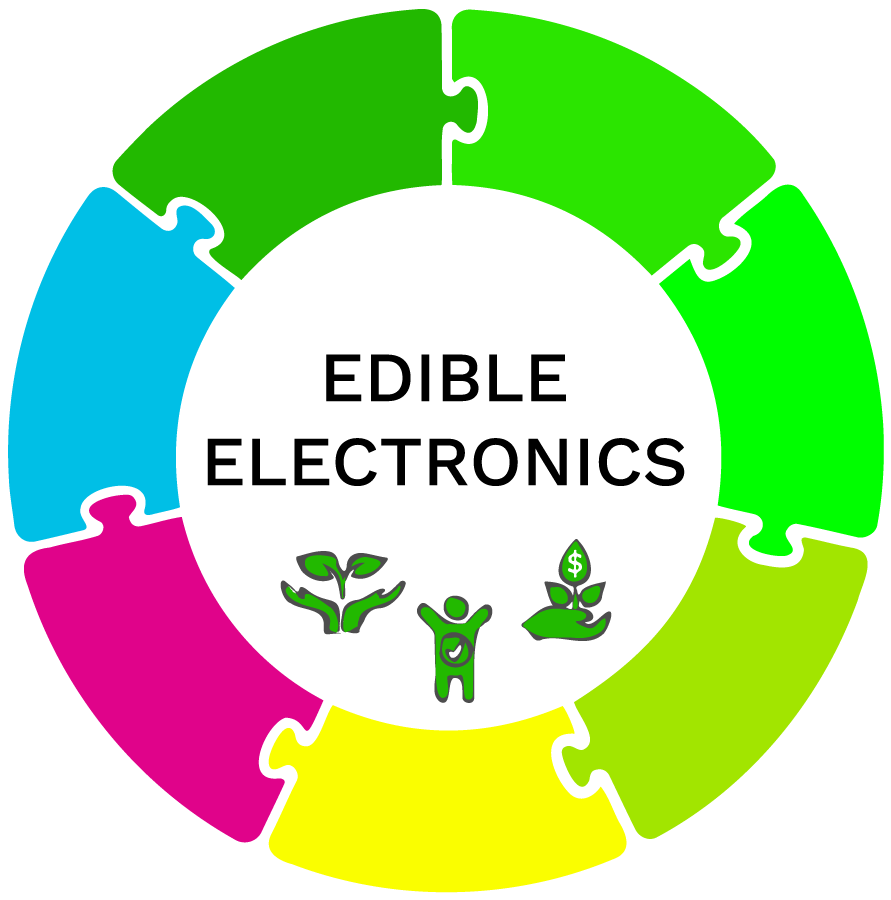

Sensors
- Sensors for in-body operation
- Sensors for out-of-body operation

Power Supplies
- Batteries
- Super capacitors
- Fuel Cells
- Energy Harvesting Technologies

Communication strategies
- Radio Frequericy Communication
- Intra Body Communication
- Acoustic and Ultrasounds Communication
- Optical strategies

Systems Approbation
- In vitro tests

Materials approval
- In vitro tests

Materials
- Insulators
- Conductors
- Semiconductors

Micro- and opto- electronic components
- Field-effect transistors
- Electrolyte-Gated transistors
- Edible electronic circuits
- Light-emission and chromism
Concept
From Ingestible to Edible Electronics
Team
Mario Caironi
Alessandro Luzio
Postdoctoral Researcher
Noemi Contreras Pereda
Noemí Contreras Pereda was born in Barcelona in 1994. She received her B.Sc and M.Sc with honors in Nanoscience and Nanotechnology from the Autonomous University of Barcelona (UAB) in 2016 and 2017 respectively, obtaining the university's special award for the degree studies. During her studies, she performed her B.Sc thesis in the group of Prof Christian Schönenberger in the University of Basel (Switzerland) studying the electrical transport in suspended carbon nanotube transistors.
In 2017, she was awarded with "la Caixa" Foundation fellowship to pursue her doctoral studies. Thus in 2017, she joined the group of Prof. Daniel Ruiz-Molina at the Catalan Institute of Nanoscience and Nanotechnology (ICN2) to pursue her doctoral studies, earning the Ph.D degree in Material Science in 2021. During her Ph.D, she developed novel conductive organic and metal-organic materials for their application in the healthcare as multimodal on-skin electronic sensors. During her doctoral studies, she won an e-COST Short Term Scientific Mission grant and did a research stay at ETH Zürich (Switzerland) under the supervision of Prof. Josep Puigmartí-Luis to develop cutting edge syntheses with microfluidic devices.
In May 2022, she joined the group of Mario Caironi at IIT in the frame of the ELFO project researching in edible electronics to expand her carrier in the field of green electronics.
Postdoctoral Researcher
Alberto Davide Scaccabarozzi
I am a materials engineer by training; alongside, I have been working on device fabrication and physics during my Postdoc years. My research activities encompass the broad field of Organic Electronics, in particular the study of structure-processing-property relationships of solution processable organic semiconductors. I am an expert in the chemical formulation of polymers and small molecules, in the assessment of structural and electronic properties of these materials and their application in a wide range of devices, including Organic Field-Effect Transistors (OFETs), Organic Solar Cells (OSCs), Organic Diodes, Organic Photodetectors (OPDs) and Bioelectronics applications.
Fabrizio Mario Ferrarese
First ELFO's paper
Edible Electronics: The Vision and the Challenge
Mario Caironi Interview
Mario Caironi has been interviewed by the main Italian News broadcasting, RAI 1
Sweet Electronics
Sweet Electronics: Honey-Gated Complementary Organic Transistors and Circuits Operating in Air
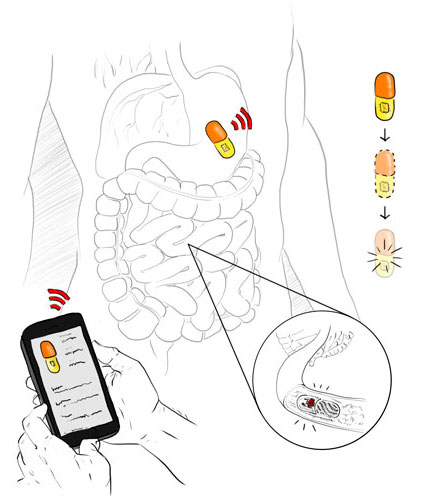
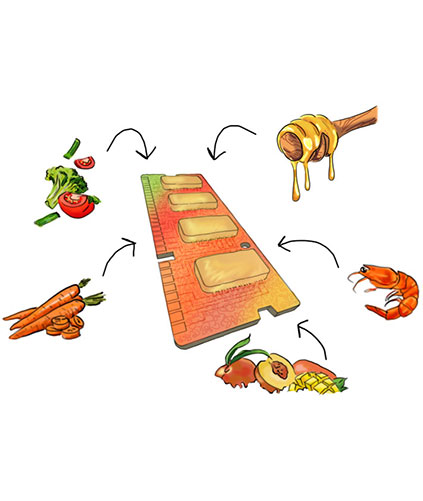
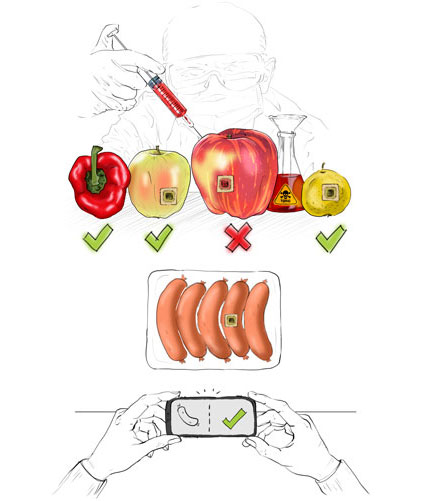
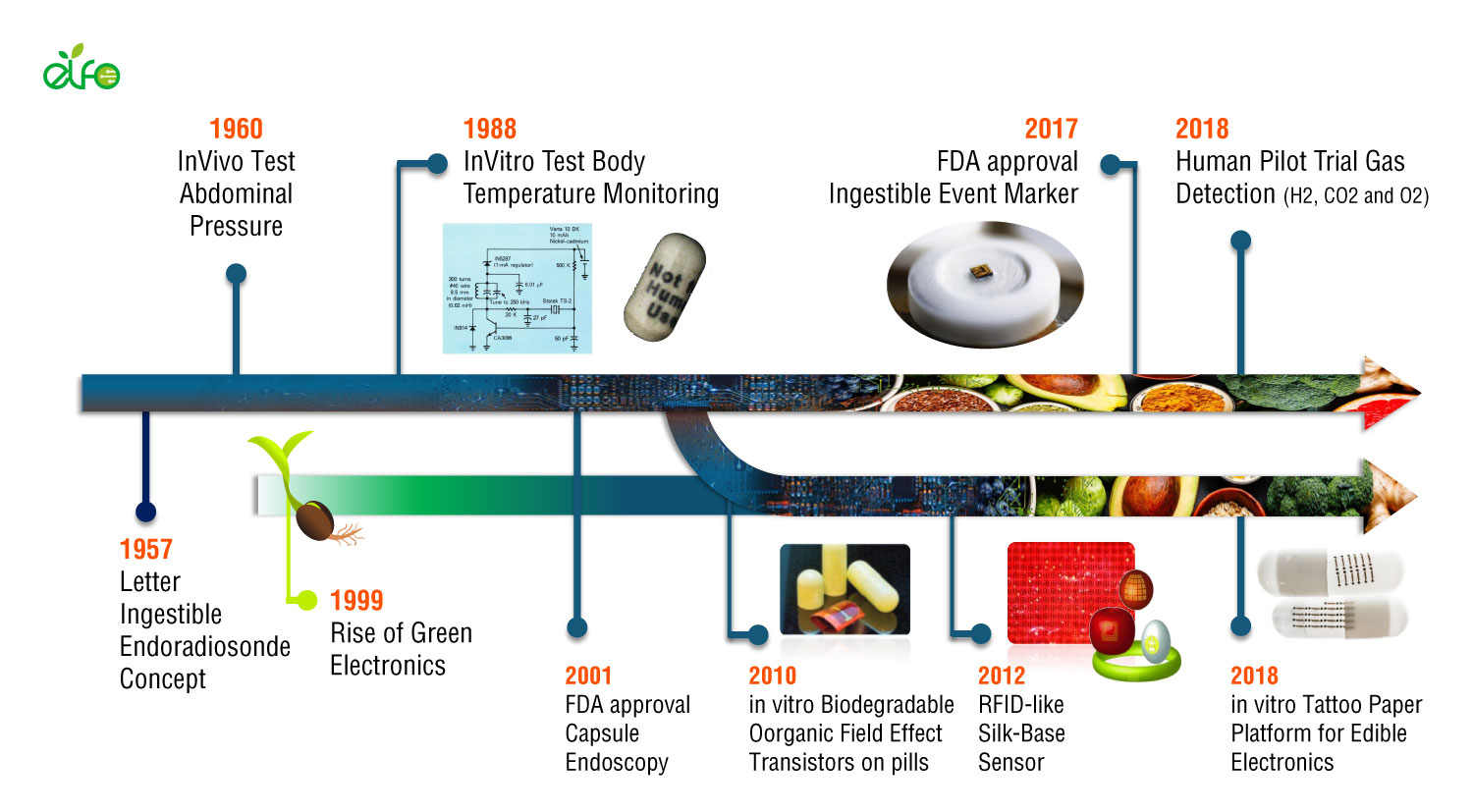



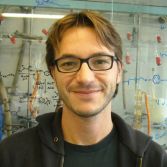



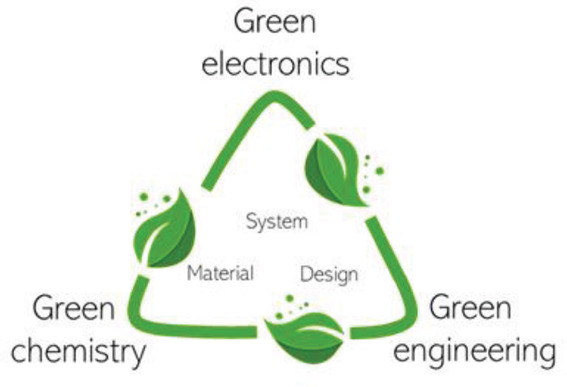
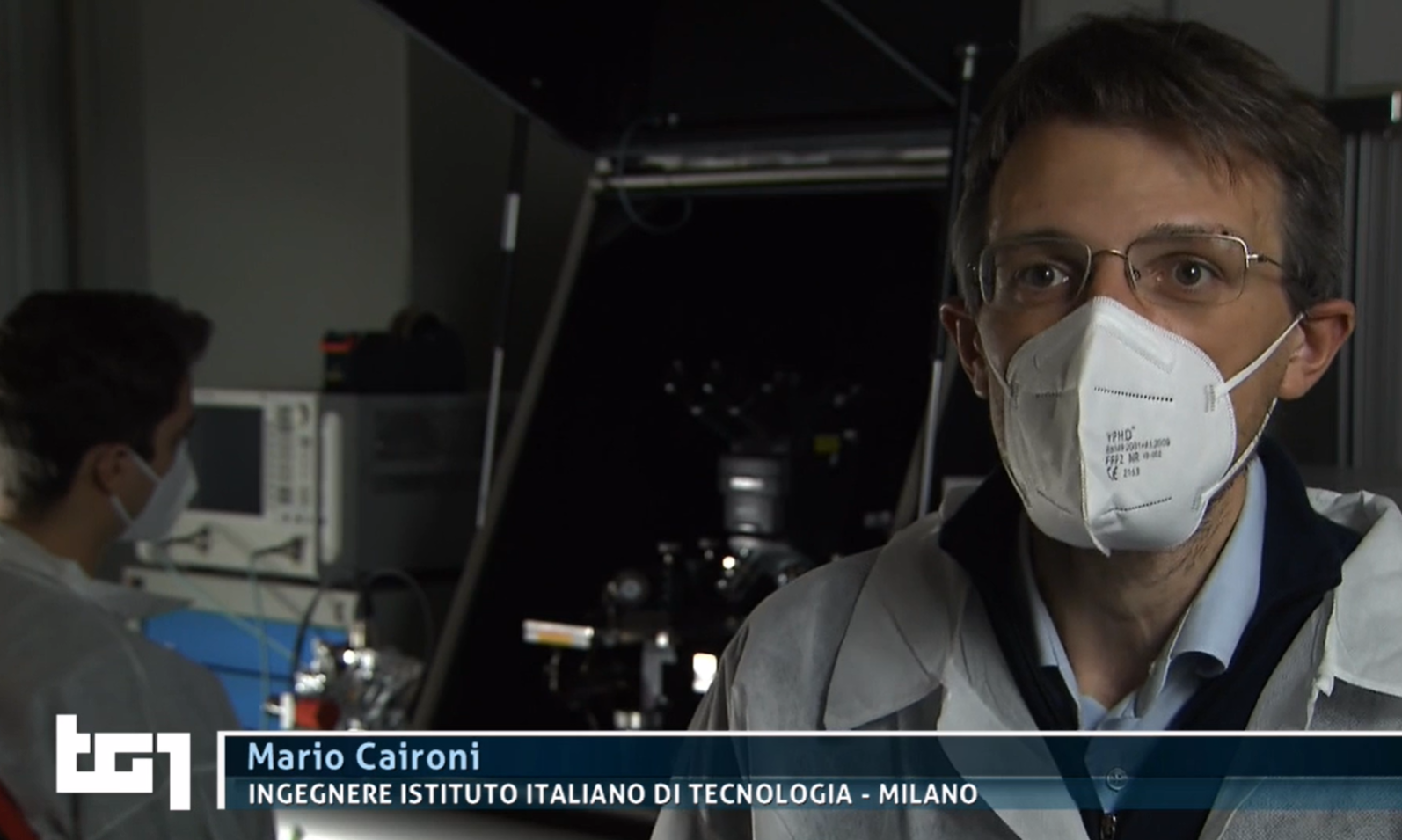

Electronic Food (ELFO) seems a concept from the future, food for humanoids or robots; but it’s not. The increasing of wasted and counterfeit food, pathology related to poor nutrition, requires the development of new green technology to track the food supply chain and monitor the wellness of our gastrointestinal tract. ELFO will provide the foundations of new enabling technology for edible electronic systems. The platform will find application in electronic tags for food monitoring, serving public health, and providing at the same time a very powerful tool against counterfeiting and wasting. At the same time, the implementation of a smart edible pill will supply gastrointestinal disease prevention, diagnosis, and therapy. A home healthcare device with the goal to anticipate needs and ensure compliance. Besides, one of the challenges of ELFO is to encourage the public acceptance of such food technology, which is useful for human health and for the environment.